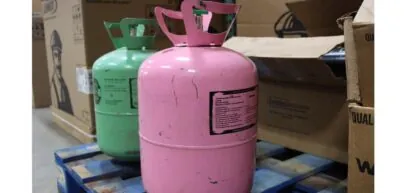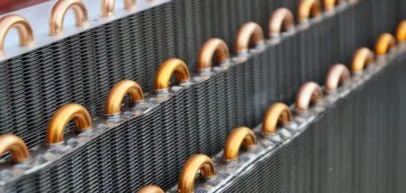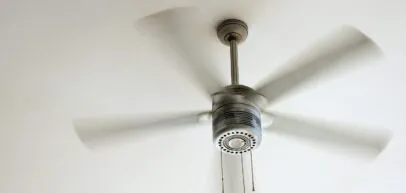What are Dual Fuel Heat Pumps & Are They Worth the Cost?
Understanding Dual Fuel Heat Pumps: A Comprehensive Guide for Homeowners
As an informed homeowner, you’ve likely considered numerous ways to enhance the comfort and efficiency of your home. If you’re considering upgrading your HVAC system, you might have come across the term “dual fuel heat pumps”. But what exactly are these systems, and how can they benefit you?
In this comprehensive guide, we’ll delve into all things dual fuel heat pumps, helping you make an informed decision about your home’s heating and cooling.
What is a Dual Fuel Heat Pump?
Dual fuel heat pumps, also known as hybrid heat pumps, are heating and cooling systems that combine the benefits of electric heat pumps and gas furnaces. By utilizing both of these energy sources, dual fuel systems offer a highly efficient and versatile solution for home climate control.
Key Components of a Dual Fuel Heat Pump
A dual fuel heat pump has three primary components:
- The outdoor unit, which is the heat pump.
- The indoor unit, which is the gas furnace.
- The thermostat, which controls when each system operates based on temperature.
How Does a Dual Fuel Heat Pump Work?
To understand how a dual fuel heat pump works, it’s important to first understand the basics of heat pump operation.
Heat Pump Basics
Heat pumps work by transferring heat from one location to another. In the summer, they remove heat from inside your home and release it outside, effectively cooling your home. In the winter, they extract heat from the outdoor air—even when it’s cold outside—and transfer it indoors to warm your home.
Dual Fuel Operation
In a dual fuel system, the heat pump is the primary heating source. However, when outdoor temperatures drop below a certain point—usually around 35°F—the heat pump becomes less efficient. This is when the gas furnace takes over.
The switch is seamless and automatic, ensuring your home stays warm without wasting energy.
The Advantages of Dual Fuel Heat Pumps
Dual fuel heat pumps offer several key advantages over traditional heating and cooling systems:
Energy Efficiency
Dual fuel heat pumps are designed for maximum efficiency. By using the heat pump most of the time and only switching to the gas furnace when necessary, they minimize energy use and reduce utility bills.
Comfort and Consistency
Because they switch between heating modes based on outdoor temperatures, dual fuel systems provide consistent comfort. You won’t experience the cold spots or temperature fluctuations that can occur with other systems.
Environmental Impact
With their high efficiency and reduced reliance on fossil fuels, dual fuel heat pumps are a more environmentally friendly option for home heating and cooling.
Considerations Before Installing a Dual Fuel Heat Pump
While dual fuel heat pumps offer many benefits, they may not be the best solution for every home. Here are some factors to consider before installing a dual fuel system:
Climate
Dual fuel systems are best suited to climates with
cold winters and hot summers. If you live in a mild climate where temperatures rarely drop below 35°F, a standard heat pump may be a more cost-effective solution.
Current HVAC System
If you already have a relatively new and efficient gas furnace, adding a heat pump to create a dual fuel system could be a good investment. However, if you would need to replace both your furnace and your air conditioner, the cost could be prohibitive.
Energy Costs
The cost-effectiveness of a dual fuel system also depends on local energy costs. If electricity is expensive in your area but natural gas is cheap, a dual fuel system could save you money. On the other hand, if both electricity and gas are expensive, a high-efficiency gas furnace might be a better option.
Costs Associated with Dual Fuel Heat Pumps
The cost of a dual fuel heat pump system can vary widely depending on a number of factors, including the size of your home, the specific models chosen, and the complexity of the installation.
Equipment Costs
On average, you can expect to pay between $2,500 and $7,500 for the heat pump and furnace units. High-end models with additional features like variable speed operation or advanced controls can cost even more.
Installation Costs
Installation costs can range from $3,500 to $10,000 or more, depending on the complexity of the installation and local labor rates. It’s important to get a detailed quote from a reputable HVAC contractor before making a decision.
FAQs about Dual Fuel Heat Pumps
Are dual fuel heat pumps worth the cost?
While dual fuel heat pumps can be more expensive upfront than traditional systems, they can save you money in the long run through lower energy bills. The exact savings will depend on your local climate and energy costs.
How long do dual fuel heat pumps last?
With proper maintenance, you can expect a dual fuel heat pump to last between 10 and 15 years.
Can I convert my existing system to a dual fuel system?
Yes, if you already have a gas furnace, you can add a heat pump to create a dual fuel system. However, this requires a compatible thermostat and may not be cost-effective if your furnace is old or inefficient.
7. Conclusion
A dual fuel heat pump can be an excellent investment for homeowners seeking a versatile, efficient, and environmentally friendly heating and cooling solution. However, it’s important to consider your local climate, current HVAC system, and energy costs before making a decision.
As with any significant home improvement project, it’s a good idea to consult with a knowledgeable HVAC professional. At Paschal Air, Plumbing & Electric, we’re here to help you understand your options and make the best choice for your home.
Remember, an energy-efficient home not only saves you money but also contributes to a healthier and more sustainable planet. Let’s work together to make a difference—one dual fuel heat pump at a time.
Air Conditioning Resources

Air Conditioning
R-22 Refrigerant Phase-Out: What to do if you Have an R-22 HVAC System

Air Conditioning
Understanding and Addressing Dirty Evaporator Coils in Your Home HVAC System





